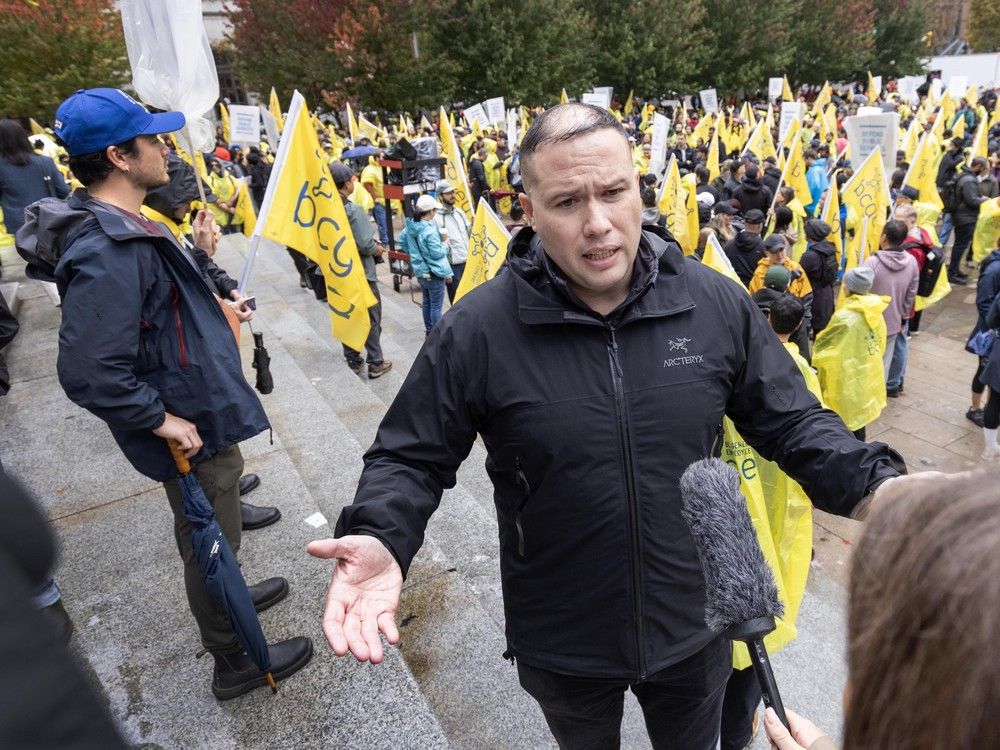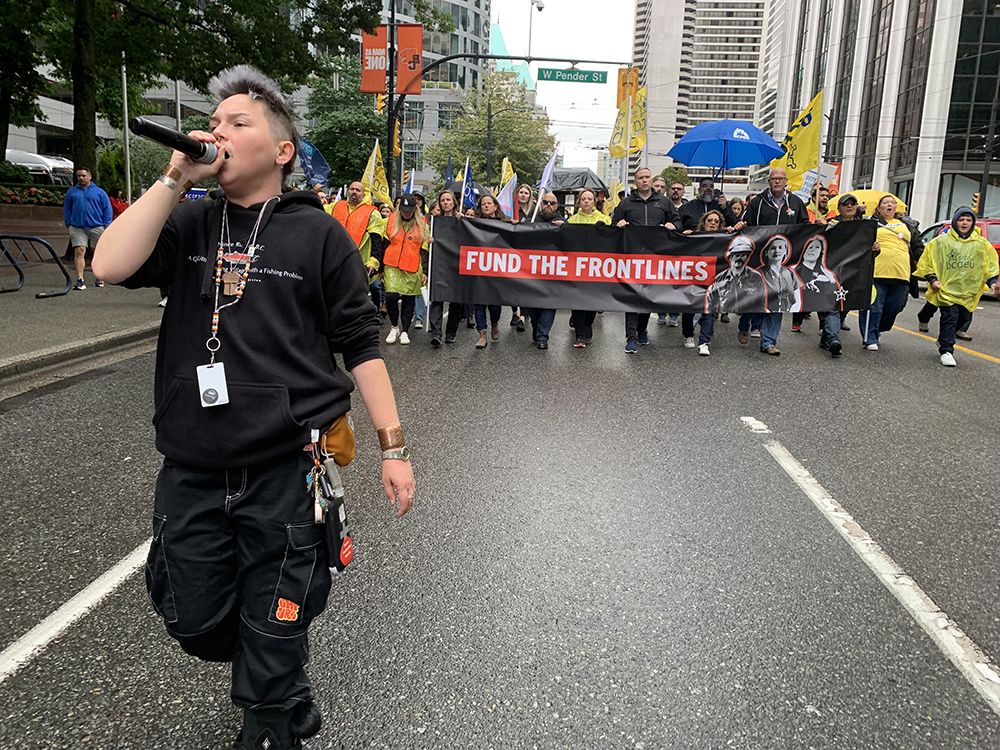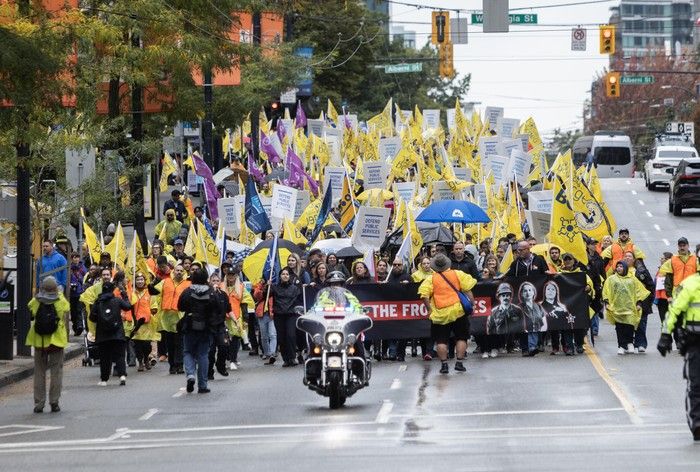
There appears to be no end in sight for the longest public-service strike in B.C. history, with the head of the B.C. Government Employees’ Union threatening further escalation over the coming days, including a possible picket line at the B.C. legislature.
With the strike now in its fifth week, there is no indication the union and the government are close to returning to the table.
Negotiations on Monday, which were announced with optimism last week, instead descended into mutual recriminations. BCGEU president Paul Finch accused government negotiators of making him and his team wait for three hours, and Finance Minister Brenda Bailey said that was a mischaracterization.
Before a rally in Vancouver Wednesday attended in members of a number of unions, Finch told Postmedia that as long as the government isn’t making what he considers a serious offer, further escalation was on the table.
The province on Monday offered an increase of 0.5 percentage points above its previous offer of 4.5 per cent, making the total wage increase five per cent over two years.
Finch said the government made him wait until 4 p.m. — an hour before the 5 p.m. deadline he had set — to tell him that was the best they could do, and so he walked away.
The union originally asked for a wage increase of 8.25 over two years but says it would accept four per cent a year over the course of the two-year deal.
“They showed up three hours later than we thought they were going to, and what we got was a 0.5 per cent increase,” he said. “That’s not an offer commensurate with asking us to come back to the table.”

Other than some early conversations with George Heyman, a former NDP cabinet minister and past president of the BCGEU who the government brought in to help with the negotiations, Finch said there’s been little outreach from government emissaries.
So far, the union has targeted government ministries, the Royal B.C. Museum, a third of provincial liquor stores as well as liquor and distribution warehouses. Roughly half of the 34,000 BCGEU members employed by the public service are undertaking job action of some kind.
B.C. Liquor has also postponed the 40th annual Bordeaux release, which would have seen a collection of bottles from the 2022 vintage put up for purchase.
Premier David Eby told reporters on Wednesday that when the two sides do get back to the table that he would “make sure that everybody is there at the same time agreed to.”
At the same time, he said the alleged tardiness is not a major issue in his eyes and that the government’s offer of five per cent over two years is more than fair.
“I think, some creativity will be needed to address the concerns of BCGEU members and ensure that we’re meeting those needs,” he said.
“But at the same time, it was a significant offer that was brought from our government. We’ve committed to ensure that members are protected against projected inflation. They’re going to be able to ensure that their earning power is not diminished.”

Justin Wiltshire, a professor of labour economics at the University of Victoria, told Postmedia that the problem for the BCGEU is that there is likely little more the NDP can offer, given the $11.6 billion deficit they are currently projecting this year and the roughly $1.5 billion they have set aside for negotiating with all public sector unions this year.
He said the rally in Vancouver could benefit the union through having other unions voice their support, but that he doesn’t think it will matter much in the long-run.
“Anything is possible, so I don’t think we can be too confident about predictions, but I would be very surprised if they got even close to what they’re looking for, said Wiltshire.
“The reality is that the province doesn’t have a lot of negotiating room. They have this trend of large and increasing deficits that is set to continue.”
He said what the BCGEU and the province really need to do is find a way to increase productivity so that the economy can grow and everyone can benefit.
In a statement, Bailey said “it’s unfortunate that the union doesn’t seem willing to reach a reasonable compromise to get an agreement.”
She added that the wage for a BCGEU employee is $6.82 an hour higher than the average salary of the average British Columbian getting paid by the hour.
Asked whether there were any plans for organized labour to disrupt the NDP convention in November, a fear of some party members, Finch deflected and instead said that the bigger concern for the NDP should be about whether they can retain votes among the public service in the next election.
“If the NDP wants to portray itself or actually be a fiscally responsible party, don’t get there by suppressing the wages of your front-line workforce,” he said.
“Get there by showing that you’re efficiently managing the administrative aspects of government.”